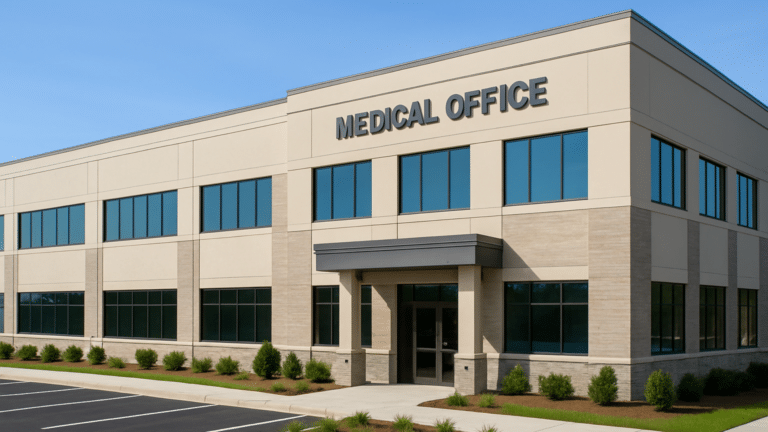A Healthcare CFO’s financial woes – beneath the surface
By Aaron McAdams, Chief Accounting Officer, Calm Waters AI
When I read recently, as you may have, about a hospital in Tennessee that missed payroll, I started to feel some of the old anxieties I remember from my earlier days as a healthcare CFO. Not that we ever even came close to missing payroll. But seeing the financial struggles of another provider is inevitably a reminder of the kinds of stresses that keep healthcare CFOs up at night.
Arguably, these CFOs are dealing with more financial stressors today than at any time in living memory:
- Bad debt and charity care as a percentage of gross revenue and calendar days increased across much of the country last year.[1] Definitive Healthcare reported that bad debt among hospitals surpassed $50 billion in 2023—and that nearly one-third of all hospitals are carrying more than $10 million in bad debt, imposing a “significant financial burden.”[2]
- Payer denials have reached an all-time high. The final denial rate on inpatient claims increased 51% between 2021 and 2023, while initial denials for outpatient procedures rose 16%.[3]
- Even though slightly more than half of denied claims by payers were overturned, the hours required to rework and resubmit them also take a toll on providers’ bottom lines. The American Hospital Association noted that hospitals and health systems spent almost $20 billion in 2022 attempting to resolve claims that had been denied.[4] They spent another $10 billion per year simply in dealing with prior authorizations from insurers.[5]
- Between 2021 and 2023, hospital labor costs increased by more than $42 billion, and an HFMA survey found that 96% of CFOs identified labor costs as a top financial challenge. Meanwhile, inflation since 2021 has grown at more than twice the rate of IPPS reimbursement.[6]
- And at the risk of leading you to squeeze your stress ball even harder, I’ll mention the flip side of rising costs: shrinking reimbursements. It’s a shocking number, but I suspect you won’t be surprised to learn that Medicare physician payments, when adjusted for inflation, decreased by 26% between 2001 and Q1 of 2024.[7]
One thing I learned as a CFO is that worrying about the bottom line means worrying about much more than just the bottom line. I used to say, more than half-jokingly, that a CFO’s title should really be CFOO, for Chief Financial and Operating Officer, because the job is more operations-intensive than most people realize.
It makes sense when you think about it. The effectiveness of billing operations impacts bad debt; when systems or staffing are inadequate, claims sit unworked and unpaid, and they get turned over for collection, meaning providers get only a fraction of the revenue they legitimately earned. Inadequate coding and documentation operations mean claims are frequently underbilled or increase the risk of costly payer denials. Inefficient patient scheduling systems increase no-shows and contribute to lower patient satisfaction, both of which impact the bottom line.
Because healthcare CFOs’ jobs connect to so many facets of their group’s operations, they are also especially well-positioned to lead the technology revolution that can lead providers into a healthier future—not only reducing costs but also increasing revenues while better serving their patients.
I’ve read about some of the “next-generation CFOs” leading similar transformations in other industries. The former CFO at Delta Airlines championed investments in predictive analytics that helped reduce canceled flights by 99%. The CFO for Virgin Hotels helped guide the organization into customer-focused innovations in technology that led to awards for guest satisfaction and top rankings in Trip Advisor.
In healthcare operations, too, rapid technological advances are already delivering bottom-line results that help CFOs sleep better. The solutions are out there, and they’re going to get even better as necessity for providers becomes the mother of invention. It’s up to us, as healthcare leaders, to embrace them and drive our organizations to a healthier place.
[1] Becker’s Hospital CFO Report, “Hospital Bad Debt Remains High,” November 3, 2023: https://www.beckershospitalreview.com/finance/hospital-bad-debt-is-on-the-rise.html
[2] Definitive Healthcare, “Five Hospital Bad Debt Statistics You Need to Know,” October 10, 2023: https://www.definitivehc.com/blog/hospital-bad-debt-statistics-you-need-to-know
[3] Becker’s Hospital CFO Report, “Rising Inpatient Claims Denials Drained $1.2B in Hospital Revenue,” May 22, 2024: https://www.beckershospitalreview.com/finance/rising-inpatient-claim-denials-drained-1-2b-in-hospital-revenue-report.html
[4] American Hospital Association, “Payer Denial Tactics—How to Confront a $20 Billion Problem: https://www.aha.org/aha-center-health-innovation-market-scan/2024-04-02-payer-denial-tactics-how-confront-20-billion-problem
[5] American Hospital Association, “America’s Hospitals and Health Systems Continue to Face Escalating Operational Costs and Economic Pressures,” May 2024: https://www.aha.org/costsofcaring
[6] “Healthcare’s Biggest Challenge: Keeping up with Rising Labor and Operating Costs, May 29, 2024: https://www.r1rcm.com/articles/healthcares-biggest-challenge-keeping-up-with-rising-labor-and-operating-costs/#:~:text=Between%202021%20and%202023%20alone,issue%20for%20the%20foreseeable%20future.
[7] “Rising Prices and Lower Medicare Reimbursement Rates Create Outrage Among Clinicians,” March 8, 2024: https://www.cancernetwork.com/view/rising-prices-and-lower-medicare-reimbursement-rates-create-outrage-among-clinicians
Aaron McAdams is the Chief Accounting Officer of Calm Waters AI and a former hospital Chief Financial Officer.



